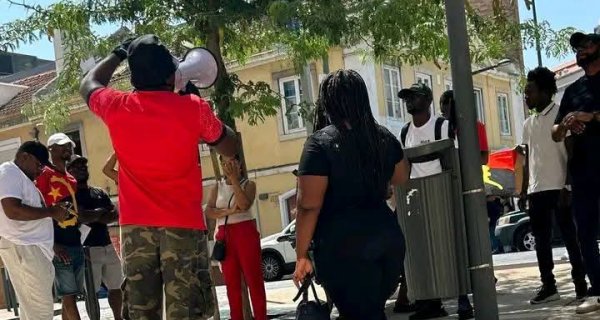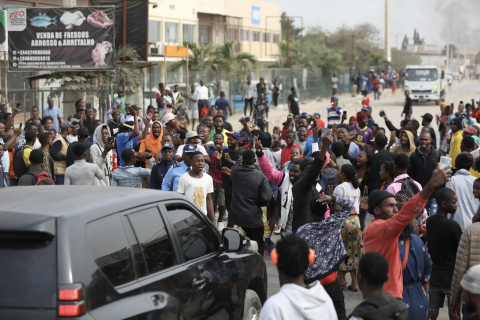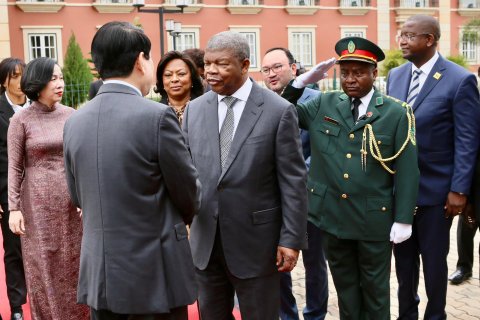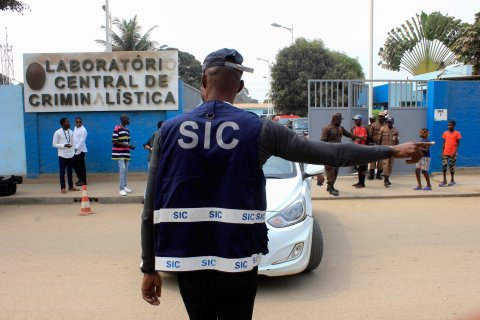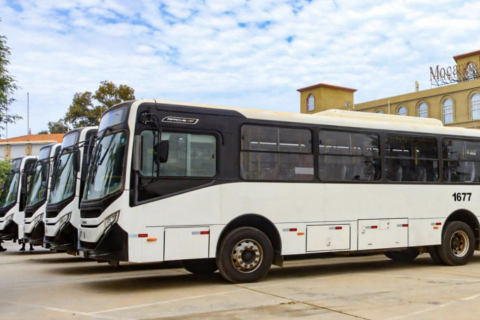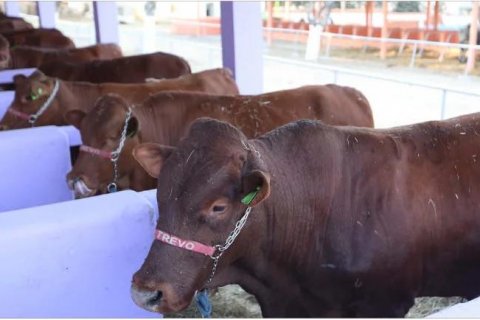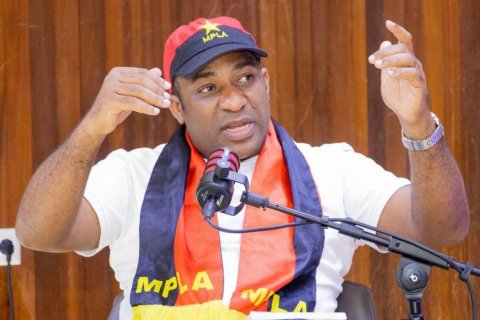Immigrants in Lisbon gathered in front of the institution starting at 9:00 am. Around 3:00 pm, around fifty people remained there, demanding respect for human rights and holding the Angolan government accountable for the deaths that occurred in the riots in Angola last week.
Due to the Lisbon rally, announced by the opposition party National Union for the Total Independence of Angola (UNITA), the diplomatic institution did not open its doors.
An Angolan citizen who asked to remain anonymous told Lusa that she had an appointment for this Friday, but the institution did not open because of the demonstration, and "dozens of people stood outside, without warning or explanation."
The same happened in London. The embassy did not open, according to the organizer of the demonstration in the United Kingdom, who also asked to remain anonymous for privacy reasons.
According to the organizer, the London event had a small turnout, "around 30 people," because it was taking place during the week. People, "no matter how much they want to fight, can't give up their wages," she explained.
In Lisbon, members of the Angolan diaspora held up signs bearing the image of Silvi Mubiala – shot dead by police in the Caop B neighborhood of Viana, on the outskirts of Luanda – and images of what they say are "political prisoners," such as activists Osvaldo Kaholo and Serrote José de Oliveira "General Nila," demanding her release.
From a megaphone, slogans blared: "Angolans must stop being fearful (...) It's unacceptable for a country like Angola to have so many deaths!"; "They're sinking our country and forcing our sisters into prostitution!"; or "Murderers!"
According to activist António Tonga, despite "more than two-thirds of the population living below the poverty line, there is a "wealthy Angolan elite, which can parade down any Avenida da Liberdade [in Lisbon], any avenue in St. Petersburg [Russia], any avenue in Paris [France], even when the Angolan people have nothing to eat."
On the other hand, immigrants in Lisbon also criticized what they call the Portuguese government's complicity. "If Portugal naturally coexists with a dictatorship, Portugal is not a democratic regime," Tonga criticized.
For Jorge Cândido, a human rights activist and defender and close friend of Osvaldo Kaholo, Angola is a dictatorship, and the people are tired of so much misery.
For him, the 2027 elections are not a sign of hope because "dictatorships also promote false elections," and the opposition is complicit with the Popular Movement for the Liberation of Angola (MPLA), which has governed the country since independence.
The young woman Marinela Marques described to Lusa the weariness she says the Angolan people feel: "We want change, we want to give another party the opportunity to govern Angola, so we can see how Angola's development will unfold," she emphasized, but when asked if UNITA would be that alternative, she answered "no."
Marques believes the solution would involve the creation of another party "that would better represent the people, especially the youth, because UNITA has never done anything either."
Márcia Branco, a UNITA activist and immigrant to the United Kingdom who attended the rally in Lisbon, explained to Lusa that, despite supporting that party, she believes this struggle is no longer about political colors, but a collective cause.
Several provinces, with the epicenter in Luanda, saw protests and riots between July 28 and 30, following a shutdown of taxi services. These protests resulted in 30 deaths, more than two hundred injuries, and more than 1500 arrests, according to authorities.

